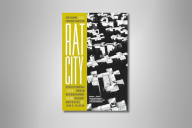You have /5 articles left.
Sign up for a free account or log in.
Robert C. Post’s Democracy, Expertise, Academic Freedom, published by Yale University Press, is a succinct and tightly argued book, and its subtitle, “A First Amendment Jurisprudence for the Modern State,” clearly signals a calm sobriety that can't be taken for granted. It covers topics that typically provoke controversy more often than thought.
Academic freedom and the First Amendment come up for discussion, most of the time, when some conflict is under way, with the ideological battle lines already drawn. The editorials on either side write themselves. And that’s to be expected. Knee-jerk reactions are a pretty shabby substitute for civic virtue, but it’s not like you can respond to every dispute in the public sphere by arguing from first principles. The urgent task is to defend a position.
Post, who is dean of the Yale Law School, is not writing in that rut. The arguments in Democracy, Expertise, Academic Freedom were originally presented at the Northwestern University School of Law when he delivered the Julius Rosenthal Lectures there in April 2008. Opening the book, my first move was to check its index for the names of certain culture-war belligerents who were much in the news back then. (You can probably guess which ones.) They are, happily, absent from its pages. Post is thinking about structural questions -- not commenting on recent affairs, as such.
Rather than indulge in the columnist’s privilege of going off on tangents, let me offer a précis of the book, followed by some very brief remarks.
That the First Amendment exists “to preserve an uninhibited marketplace of ideas in which truth will ultimately prevail” is a familiar and venerable argument, originally framed by Oliver Wendell Holmes, Jr. almost a century ago, and invoked in Supreme Court decisions many times since then. The bit in quotations marks just now, for example, is a typical instance from 1969. The formulation has been assessed and contested at great length by legal theorists. Whatever its merits or deficiencies in general, however, the “marketplace of ideas” argument is no help at all in understanding the relationship between the First Amendment and what Post calls “the production of expert knowledge.”
Expert knowledge is produced within disciplines that regulate what counts as knowledge and what doesn’t. Disciplines involve methods, practices, and judgments that make preempt a laissez faire attitude. And that is a good thing. “If a marketplace of ideas model were to be imposed upon Nature or The American Economic Review or The Lancet,” writes Post, “we would rapidly lose track of whatever expertise we possess about the nature of the world.”
There is a complex and constant tension between the need for untrammeled argument in the public sphere, on the one hand, and the disciplinary protocols that constitute expert knowledge.
I have the right to an opinion about what causes cancer and can express it -- although the fact that I am not a medical researcher or doctor limits what I can do with my ideas practically (without going to prison anyway), not to mention how seriously the theory will be taken.
Which is, all things considered, probably for the best. Of course I may feel that it is terribly elitist, and that the state has no business deciding what counts as good medicine. But in reality, the state has handed over to the medical profession the task of determining the criteria for what counts as real knowledge. The profession also imposes those limitations on its own members.
Or rather, the discipline of medical science establishes a set of conditions in which claims and counterclaims can be tested and adjudicated. The medical profession attends to how the knowledge so created gets put into practice. Nobody else gets to vote.
This hypothetical example (mine, not Post's) is offered it in hopes of making more concrete his careful argument that the tension between open public debate and the self-regulation of established intellectual disciplines is, on the whole, both necessary and salutary. Furthermore, it is in keeping with an interpretation of the First Amendment that stresses its role in the “securing of an informed and educated public opinion with respect to a matter which is of public concern,” to use another SCOTUS formulation, from 1940. That emphasis is quite distinct from -- even potentially in conflict with -- notions that the First Amendment should primarily ensure the right of self-expression or encourage free trade in the marketplace of ideas.
Post's thesis, then, is that academic freedom ensures the production of knowledge (and the reproduction of expertise) through disciplines that serve “an informed and educated public opinion” by clarifying “matter[s] … of public concern” -- but are, in turn, insulated from public opinion. The state must defer to the protocols and the findings of disciplines, which regulate themselves. If a certain theory or idea isn’t being taught or taken seriously within a discipline, that is not a violation of the freedom of speech -- no matter how many people think the theory or idea has merit.
That, then, is a supercondensed version of the book’s salient points -- or some of them, at least. Here are a few quick supplementary observations I made along the way:
Post has been writing and thinking about academic freedom and the First Amendment for a while (see this earlier Inside Higher Ed interview, for example) but his Rosenthal lectures seem less like a summing-up than the preface to a much larger project. He writes that “judicial efforts to safeguard the value of democratic competence ultimately depend upon a constitutional sociology of knowledge.” That sentence is, I suspect, the zygote of a multivolume treatise.
The book does not mention Stanley Fish, which is surprising because he and Post have been interlocutors in one another’s arguments since at least the early 1990s. There are similarities between their perspectives, and differences that are striking, and if somebody wanted to work all of them out in a paper, that might be interesting. In any case, one point in particular seems relevant to the volume at hand:
In an article appearing in the Texas Law Review a couple of years ago, Post wrote that Fish tries "’to find a way to exclude political controversy from the classroom” by making sure that “classroom discussion never affirms or denies the truth of particular propositions … [nor] the desirability of particular forms of action.” Teach the controversy, just don’t take a position, and presto! Problem solved.
Post suggests that Fish is blinkered by “disciplinary parochialism” as a literary critic. The advice would not work in biology, for example. Evolution is a scientific theory. Creationism is not, however it is packaged, and no matter what they decide down at the state legislature. “Political controversy comes to biologists simply because they are doing their job,” writes Post. “Fish’s diagnosis to the contrary notwithstanding, doing one’s academic job confers no immunity from the culture wars.” The exercise of some forms of disciplinary expertise will trip ideological land mines no matter what.
Finally: Post's title, Democracy, Expertise, Academic Freedom, appears on the dust jacket in such a way that it seems to spell out an anagram: DEAF. This is certainly an accident. Then again, it seems fitting for a book on such controversial matters, since the debate over them seems, much of the time, like a dialogue du sourds.








